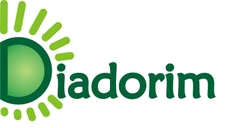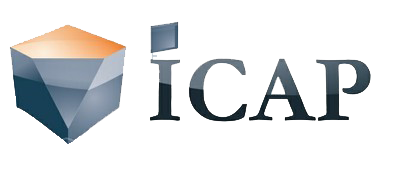Tecnologia da Informação e Comunicação [TIC] em cursos de graduação em Turismo
Uma análise multidimensional das ementas
DOI:
https://doi.org/10.29149/mtr.v8i2.7351Keywords:
Tourism; Information and Communication Technology; Higher Education; Syllabi; IRAMUTEQ.Abstract
Information and Communication Technologies [ICT] are increasingly present in society and knowledge about these technologies has become essential in the search for placement in the labor market. Thus, this study is part of a research of the Research Group ‘X’ involving junior researcher (iniciação científica) and graduate researchers from the Master's Program in Tourism. The article aims at investigating the occurrence of technology and information in disciplines in tourism at the higher education level at public universities in Brazil, in order to understand the insertion of ICTs in the Study Programs of Tourism courses. To achieve the proposed objective, qualitative and exploratory research was carried out. The research was divided into three stages: bibliographic research seeking the descriptors: "ITC - Information Technology and Communication" and "Tourism" in the “Web of Science [WoS]” and “Tourism Publications” databases. Documentary research in electronic media, in which 31 disciplines related to Information and Communication Technologies were identified in 26 universities. And the last step was the analysis of the 31 syllabi in the ‘Interface de R pour les Analyses Multidimensionnelles de Textes et de Questionnaires [IRAMUTEQ]’ and their bibliographies. From the software analysis, it was possible to separate the syllabi into 5 classes: ‘Operational’ (23.3%); ‘Procedural’ (16.7%); ‘Tourist Experience’ (20%); ‘Communication and Data’ (16.7%); and ‘Tourism Companies’ (23.3%). According to the classification of the menus and analysis of the bibliographies used, it was understood the application of disciplines related to ICTs in educational institutions, considering the importance of these contents in the graduation to meet the needs of the labor market in tourism.
References
Barbosa, D. P., & Medaglia, J. (2019). Tecnologia digital, turismo e os hábitos de consumo dos viajantes contemporâneos. Marketing & Tourism Review, 4(2).
Camargo, B. V., & Justo, A. M. (2013). Tutorial para uso do software de análise textual IRAMUTEQ. Recuperado em 12 maio, 2021, de http://www.iramuteq.org/documentation/fichiers/tutoriel-en-portugais
Camargo, B. V., & Justo, A. M. (2013). IRAMUTEQ: Um Software Gratuito para Análise de Dados Textuais. Temas em Psicologia. v, 21(2), 513-518.
Catramby, T. (2016). Bacharelado em turismo: teoria, prática e expectativas. Curitiba: Appris.
Catramby, T. (2018). Olhando Pela Janela da Universidade: Oportunidades e Desafios na Produção de Conhecimento. Curitiba: Appris.
Costa, A. J. D. S., De Araújo, D. L., & Perinotto, A. R. C. (2019). O Uso Da Tecnologia Da Informação E Comunicação Por Agências De Turismo Do Porto Das Barcas, Em Parnaíba-piauí-brasil. Revista Eletrônica Ciências da Administração e Turismo. v, 7(1), 62-80.
Demo, P. (2001). Desafios modernos da educação. Editora Vozes.
Gil, A. C. (2002). Como elaborar projetos de pesquisa (Vol. 4, p. 175). São Paulo: Atlas.
Gil, A. C. (2008). Métodos e técnicas de pesquisa social. 6. ed. Editora Atlas SA.
Gomes, E. L., Gândara, J. M., & Ivars-Baidal, J. A. (2017). É importante ser um destino turístico inteligente? A compreensão dos gestores públicos dos destinos do Estado do Paraná. Revista Brasileira de Pesquisa em Turismo, 11(3), 503-536.
Hughes, K., & Moscardo, G. (2019). ICT and the future of tourist management. Journal of Tourism Futures.
Infante-Moro, A., Infante-Moro, J. C., & Gallardo-Pérez, J. (2019). The importance of ICTs for students as a competence for their future professional performance: The case of the faculty of business studies and tourism of the University of Huelva. Journal of New Approaches in Educational Research (NAER Journal), 8(2), 201-213.
Lakatos, E. M. (2003). MARCONI, Marina de Andrade. Fundamentos de metodologia científica, 5.
Lei nº 13.243, de 11 de janeiro de 2016. (2016). Dispõe sobre estímulos ao desenvolvimento científico, à pesquisa, à capacitação científica e tecnológica e à inovação e altera a Lei nº 10.973. Diário Oficial da União, Brasília, DF, 11 jan. Seção 1, Página 1.
Lima, D., & Mendes Filho, L. . (2021). Modelo INVAT.TUR: Indicadores relevantes para gestão de um destino turístico inteligente. Cenário: Revista Interdisciplinar Em Turismo E Território, 9(2), 150–170.
Marquis, C. A. (2000). La Universidad latinoamericana: promesas cumplidas y desafíos pendientes - el caso Argentino. In: Schmidt, B. V., & de Oliveira, R. (2000). Entre escombros e alternativas: ensino superior na América Latina. Editora UnB.
Matias, M. (2002). Turismo: formação e profissionalização (30 anos de história). Editora Manole Ltda.
Minayo, M. C. D. S. (1994). Ciência, técnica e arte: o desafio da pesquisa social. Pesquisa social: teoria, método e criatividade, 21, 9-29.
Ministério da Educação. (2003). Parecer CNE/CES 67/2003. MEC. Recuperado em 28 abril, 2021, de http://portal.mec.gov.br/index.php?option=com_docman&view=download&alias=139531-pces146-02&category_slug=fevereiro-2020-pdf&Itemid=30192
Ministério da Educação. (2006). Avaliação de Cursos de Graduação. Brasília, MEC. Recuperado em 28 abril, 2021, de http://portal.inep.gov.br/documents/186968/484109/Instrumento+de+avalia%C3%A7%C3%A3o+de+cursos+de+gradua%C3%A7%C3%A3o/599968fa-b28e-4ce9-9bd8-4ef92fda88f7?version=1.1
Nimatulaev, M. M., Sirbiladze, K. K., Tsvetkova, O. N., Ivanova, L. I., & Konovalova, E. E. (2020). Improvement of Information Technologies in the Hotel Business. Revista TURISMO: Estudos e Práticas, 9(1).
Praničević, D. G., & Mandić, A. (2020). ICTs in the hospitality industry: An importance-performance analysis among small family-owned hotels. Tourism (13327461), 68(2).
Portal De Periódicos CAPES/MEC. (2021). Acervo. Recuperado em 28 abril, 2021, de https://www-periodicos-capes-gov-br.ezl.periodicos.capes.gov.br/index.php?
Publicações de Turismo. (2021). Sobre o Publicações de Turismo. Recuperado em 28 abril, 2021, de http://www.each.usp.br/turismo/publicacoesdeturismo/sobre.php.
Rodrigues, F. I. B., & de Oliveira Alexandre, M. L. (2020). Tecnologia da informação no planejamento de viagens e turismo: análise do uso de aplicativos. RITUR-Revista Iberoamericana de Turismo, 10(1), 130-144.
Salviati, M. E. (2017). Manual do Aplicativo Iramuteq. Recuperado em 28 abril, 2021, de http://www.iramuteq.org/documentation/fichiers/manual-do-aplicativo-iramuteq-par-maria-elisabeth-salviati
Silva Pereira, R., Franco, I. D., Almeida, L. C. B., & Santos, I. C. (2012). O ensino de “inovação” na administração, ciências contábeis, turismo e tecnologia em gestão: um estudo exploratório em instituições de ensino superior brasileiras. Revista de Administração e Inovação. 9(4), 222-244.
Silveira, C. E., Medaglia, J., & Nakatani, M. S. M. (2020). O mercado de trabalho dos egressos de cursos superiores em turismo: comparações dos dados de 2012-2018. Revista Brasileira de Pesquisa em Turismo, 14(2), 83-94.
Schmidt, B. V. (2000). A Educação Superior e a Globalização. In: Schmidt, B. V., & de Oliveira, R. (2000). Entre escombros e alternativas: ensino superior na América Latina. Editora UnB.
Tavares, J. A. G. (2000). Universidade, Elites e Estado. In: Schmidt, B. V., & de Oliveira, R. (2000). Entre escombros e alternativas: ensino superior na América Latina. Editora UnB.
Downloads
Published
How to Cite
Issue
Section
License
Copyright (c) 2022 Lucas Masiero, Brendha Rangel, Carlos Eduardo Silveira, Juliana Medaglia

This work is licensed under a Creative Commons Attribution 4.0 International License.
Authors who publish with this journal agree to the following terms:
- Authors retain copyright and grant the journal, without cost for the journal, right of first publication with the work simultaneously licensed under a Creative Commons Attribution License that allows others to share the work with an acknowledgment of the work's authorship and initial publication in this journal.
- Authors are able to enter into separate, additional contractual arrangements for the non-exclusive distribution of the journal's published version of the work (e.g., post it to an institutional repository or publish it in a book), with an acknowledgment of authorship and its initial publication in this journal.
- Authors take full responsibility for their opinions expressed in the works published in this journal.
















